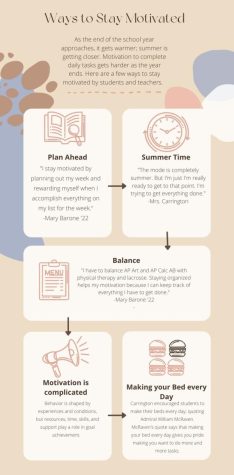“March” into Women’s History Month
Many privileges have come to womankind throughout American History, like the right to vote, own property, and hopefully much more to come. So, why is this important, especially during the month of March you ask? March is National Women’s History month, a time to reflect on the many accomplishments and contributions women have made throughout history. Dedicating a whole month in honor of women’s achievements may seem pointless now, but when the idea first started, many saw it as a major turn towards the appreciation of feminism. Before women were designated the entire month of March, the U.S. recognized Women’s History Week; and before that, a single International Women’s Day. Keep in mind as to how WE, as an all girls school, can make a difference in the advancement of women’s rights today.
When it comes to influential women in America today, many people think of Oprah Winfrey, Michelle Obama and Hillary Clinton, but who should we credit in establishing Women’s Month? In March of 1911, Clara Zetkin, a German woman, organized the very first International Women’s Day. She was very interested in women’s politics including equal opportunities and women’s right to vote. Over the years, the interest in International Women’s Day decreased rapidly. It regained momentum again in the 1960s, when the women’s movement caused women to wonder why their achievements were being excluded from history books.
In years to follow, President Ronald Reagan passed proclamations publicizing Women’s History Weeks. The Women’s National History Project sought out for a longer observation, and in 1987 Congress established March as Women’s History Month.
Now, Presidents sign annual proclamations announcing Women’s History Month and the National Women’s History Project provides a theme each year. For 2016, the theme is, “Working to Form a More Perfect Union: Honoring Women in Public Service and Government.” Padua English teacher, Ms. Sophrin exclaimed, “Since I began teaching at Padua, National Women’s Month has become even more important to me. As an all girls school, I think it is our responsibility to teach one another about important women role models who have shaped history.” She added, “I think it is incredibly important that we support one another and emphasize how each one of us is unique and powerful in our own way.” When asked how she incorporates “Women’s History Month” throughout her teaching she responded, “Everyday, I try to incorporate this into my teaching. Just last week, my students and I did a lesson in which we watched an interview between Malala and Emma Watson, two young women who support women’s equality, peace, and education. As a class, we addressed the hashtag ‘OneDayIWill’ and discussed our own goals and ambitions as well as intentions for women around the world!” After all, girls do rule, especially in our school.

Sydney K. '19 is passionate, aspiring young writer. She's currently a freshman at Padua Academy and is an eager and determined athlete who always strives...









